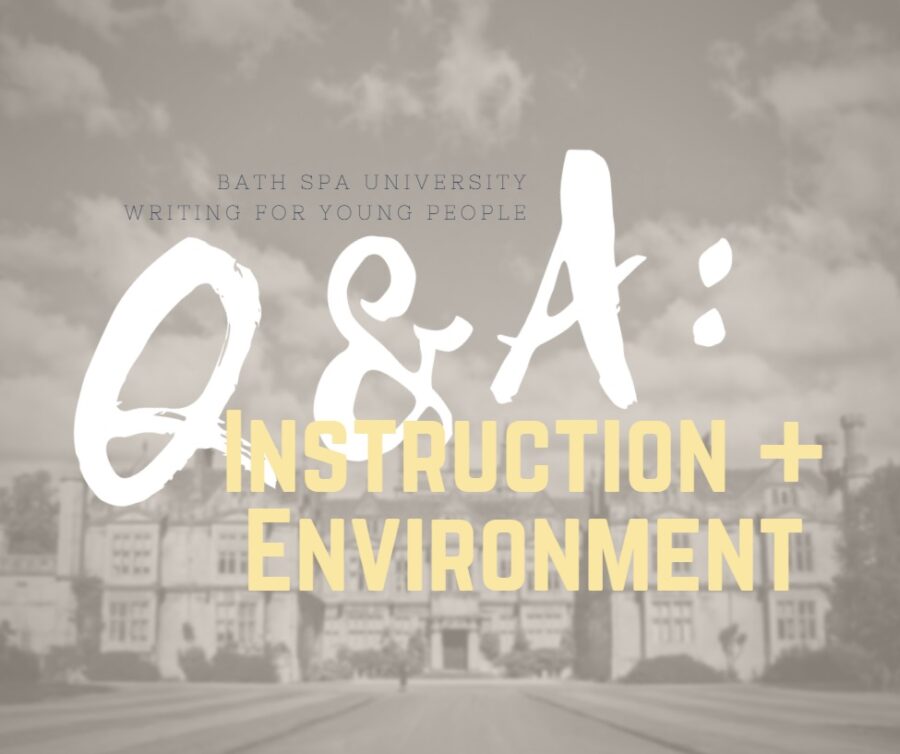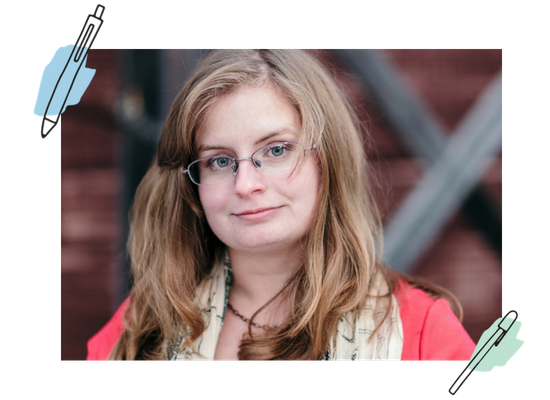It’s round three of my Q&A session about Bath Spa University’s Master of Arts in Writing for Young People. This section is about the instruction and environment in the classroom, and what to expect during the final third term of the course. Enjoy!
You can see more posts in the series under the Q&A tag!
As always, feel free to reach out with more questions by contacting me at: alyssamhollingsworth [at] gmail [dot] com
A thousand disclaimers: I only have my experience of the Writing for Young People course to draw from (class of 2014). I’m not a member of staff and can never hope to be as informed as the infallible Julia Green. Everything is my own opinion and may or may not be influenced by my personal preferences, the amount of candy I’ve had today, or the number of likes my latest corgi video got on Facebook. Extra disclaimer: Please note the date of this post. Since 2016, a lot of faculty turnover and program changes have taken place. My experience may or may not reflect the MA as it is today.
Q&A – Instruction and Environment:
1. What is the blend of students’ ages on the course?
2. Did you have a choice in or input regarding the your manuscript tutor?
3. Were you matched according to the type of novel that you were writing?
4. How much guidance or interaction did you receive from your tutor?
5. I remember you mentioned meeting with your tutor in person; did you also exchange emails, etc?
6. Did your tutor offer a lot of feedback, critique, or editorial help as you progressed?
7. Was there any other work you were required to do during your manuscript module, or was it solely focused on writing your novel?
1. What is the blend of students’ ages on the course?
I would say it’s definitely a mix. In my core workshop group, there were two students who came directly from undergrad, two that had been out of college for a few years, and one who was in her 40s. In the full-time group, you’ll find more people on the younger end. Part-timers tend to be 35+, just because of different life stages.
2. You mentioned that an MA student might be paired with a PhD student as a tutor during the final manuscript module — did you have a choice in or input regarding your tutor?
Not really — we were told who our tutors would be at the very end of the spring semester. However, they normally put you with a tutor you’ve already worked with. (I think five of my six core group were assigned to tutors we’d already had.) I do know a part-timer who asked for a specific tutor, and I think they made that work.
The PhD students are all very well accredited, it’s worth noting. The vast majority have published books and are knee-deep into their writing careers, so they will bring a lot of experience to the table.
3. Were you matched according to the type of novel that you were writing?
Not necessarily. I think the tutors had some choice in the selection. But even if the tutor doesn’t personally write for your same genre/age range, they are expertly trained and have fabulous advice. My friend Sarah Driver was given CJ Skuse. Sarah writes fantasy MG, and CJ writes contemporary upper-teen. But CJ was an excellent tutor and Sarah was extremely pleased with their work, and now Sarah’s got a huge deal with Egmont, so they must have been doing something right!
My manuscript was a fantasy YA and my tutor was a very non-fantasy contemporary teen writer (Lucy Christopher). I found her outsider input invaluable, actually — she pushed me to make the fantasy elements of my story clear.
4. How much guidance or interaction did you receive from your tutor?
It depends slightly on who your tutor is. I had a lot of interaction with Lucy. My 6-8 meetings with her were about one or two hours each, fairly evenly divided between my questions for her and her feedback based on the samples she’d read.
5. I remember you mentioned meeting with your tutor in person; did you also exchange emails, etc?
The method of communication depends on how you guys want to work. I love her to death, but Lucy can be tricky with email — she’s either fast and thorough, or she won’t see it for weeks. So I normally saved any questions for our meetings. But when I had panic-attacks, I would shoot her an email anyway. My friend Becca went abroad during the summer, and she and her tutor met via Skype.
6. Did your tutor offer a lot of feedback, critique, or editorial help as you progressed?
I got a lot of editorial feedback, critique and help. Lucy and I would often discuss the various weaknesses of the selection she had read and talk through solutions to the problems. She also opened my mind to new directions for tension, conflict, and development.
A big example from my friend Sarah: CJ is the one who first told her, “I think you’ve actually got a trilogy on your hands.” (I remember because I was waiting for Sarah for about three hours to go catch the bus! They got completely wrapped in their planning and brainstorming.) Without that input, she might have continued to try to keep it all in one book!
The feedback and encouragement pushed my writing enormously and kept me going.
7. Was there any other work you were required to do during your manuscript module, or was it solely focused on writing your novel?
Nothing else required! I chose to take a job as an editorial moderator during July for a special WWI project, and (like I said) my friend went abroad (to teach in Italy). There’s no obligation to take on extra stuff — but there’s enough freedom that you can if you want.
Tune in for more soon! Feel free to leave a comment with a question about the instruction at BSU’s Writing for Young People program (or, if you’re an alumnus, dispute my claims!).


















